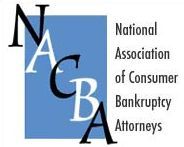If your credit score right now is high, then yes, your score will drop when you file bankruptcy.
But not permanently. If your score right now is low, filing for bankruptcy will have less effect on your score, and it can even result in your credit score going up.
Your credit score has a lot to do with whether or not you have been making all of your credit card and loan payments on time. If you have enough debt to be considering filing bankruptcy, you may be making the required minimum payments, keeping your credit score up, but struggling to make ends meet in the process. Or, you may have found the payments so overwhelming that you stopped making the payments, and that will have brought your credit score down already.
Filing for bankruptcy is a way to eliminate credit card and personal loan payments. Without the burden of paying hundreds of dollars per month, mainly for interest, you can free up that money for things you would rather pay for, like groceries, gas for your car, utility bills, in other words, for necessities. In fact, you may find that you can finally afford an occasional meal out, take in a movie, or put some money into savings for emergency repairs or a vacation. You will be able to build your credit score back up over time, by taking out small lines of credit, using the credit wisely, and paying the balances in full every month.
There are lenders who will extend you credit despite having a bankruptcy on your credit report.
Some lenders actually seek customers who are former bankruptcy debtors to offer them loans, knowing that there are a lot of them out there who will welcome the opportunity to buy a car or to get a line of credit.
Before bankruptcy, your report showed that you were required to make a lot of monthly payments to other lenders. A new lender would know that your ability to make payments on new credit depends on your having enough money every month to pay everyone. And, they know that the more credit card and personal loan debt you have, there is a risk that you might decide to file for bankruptcy and discharge the new debt.
After bankruptcy, a lender will see that you do not have a lot of other creditors to pay, making it easier for you to pay on a new loan or line of credit. What’s more, lenders know that the bankruptcy laws do not permit you to file another bankruptcy for years. For example, you must wait at least 8 years after filing a Chapter 7 bankruptcy before you are permitted to file another Chapter 7 bankruptcy. Having fewer creditors to pay, and posing no risk of another Chapter 7 bankruptcy for years, it makes sense that lenders would see you as a good candidate for new credit. They do not ignore the fact that you reached the point of having to file for bankruptcy, calling into question your ability to properly manage your debts, so lenders will be concerned enough to charge you higher rates of interest at first. However, by limiting the amounts you borrow, or that you spend on a line of credit, you will gradually increase your credit score by making your payments on time.

